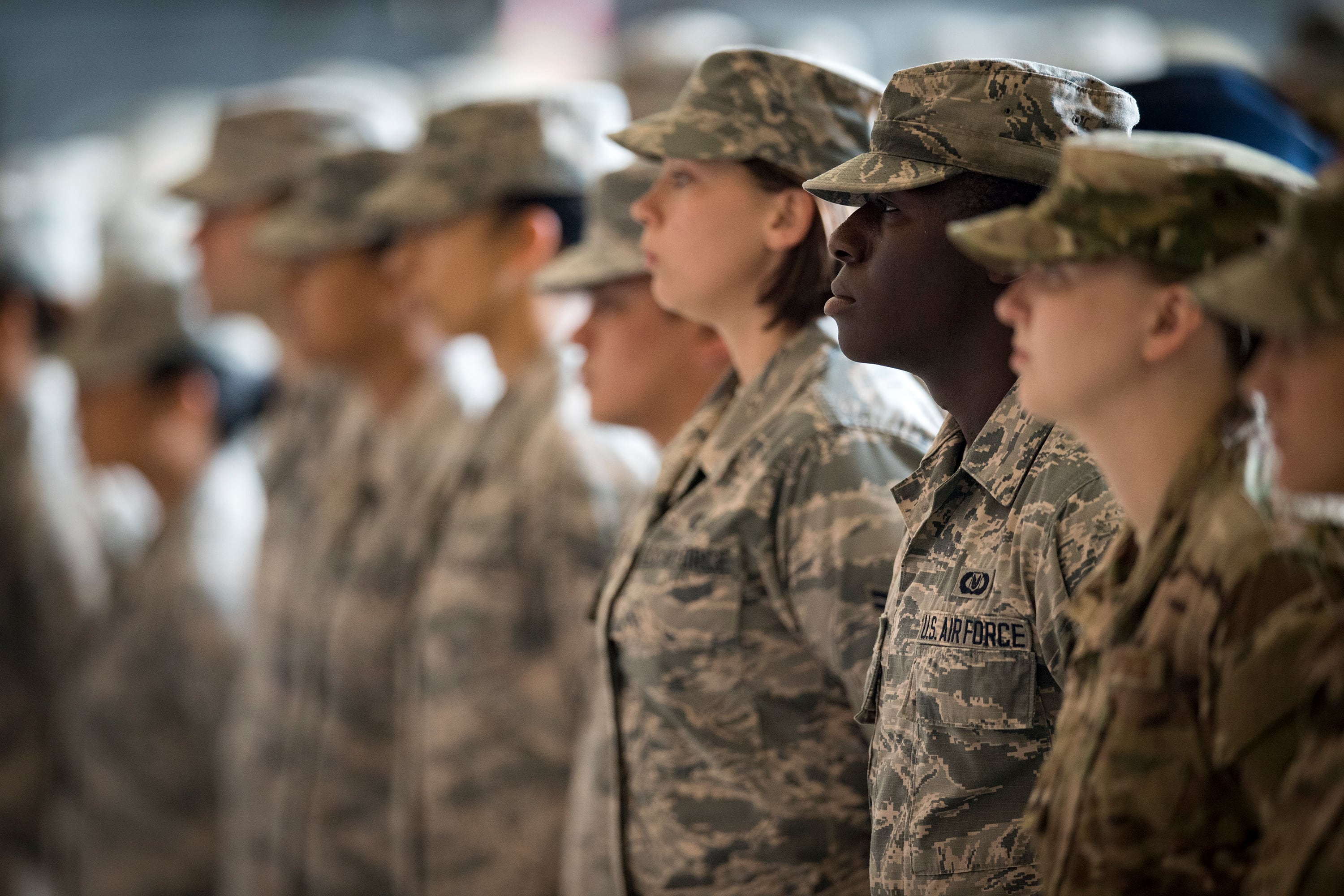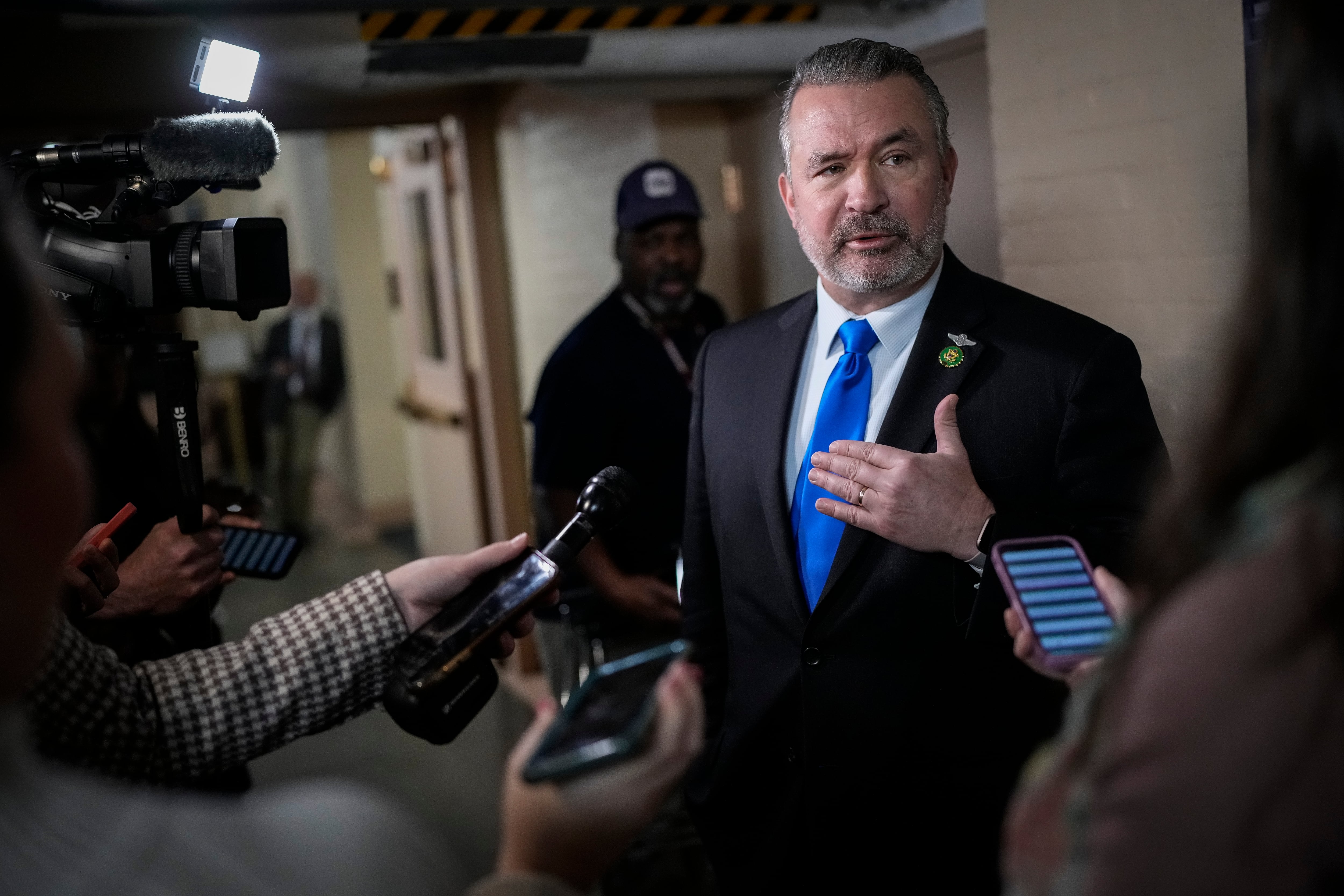Military service officials say they’ll use a mix of bonuses and other financial incentives, instead of raising enlisted pay, to meet this year’s recruiting goals.
The White House has proposed a 5.2% pay raise for all service members in 2024, following a 4.6% boost in salaries that went into effect in January. But House and Senate lawmakers have discussed the idea of boosting that even further — particularly for younger enlisted troops — as a way to make up for soaring inflation costs in recent years, and encourage more Americans to sign up.
On Wednesday, during a hearing on recruiting challenges before the Senate Armed Services Committee, senators broached the topic again as a way for military leaders to meet their personnel goals for the year.
RELATED

But defense officials said they want to study the idea as part of future military compensation reform, instead of implementing it as a quick fix this year.
“We have done reviews of this and found that if you do a job in the Navy or Marine Corps and do the same job in the private sector, on average the people doing the job in the military earn more,” said Erik Raven, Under Secretary of the Navy. “But there remains this perception that [service members] earn much less than their private sector counterparts.”
He expressed concerns that targeted pay raises for smaller groups within the total force could cause complications in salaries across the ranks.
Army and Air Force officials said they are looking at improving some targeted military enlistment and reenlistment bonuses as a better way to help with recruiting, and at making sure the 5.2% pay raise proposal is adopted by Congress as soon as possible. In recent years, the defense budget hasn’t been approved until months after the new fiscal year starts.
But lawmakers questioned whether that will be enough.
“The promise of competitive pay is the foundation for the all-volunteer force,” said Sen. Joni Ernst, R-Iowa, noting that an internal survey by the Defense Department found compensation issues to be the top concern for troops.
She bristled at equating civilian and military pay.
“It’s an apples-to-oranges comparison when you’re asking young men and women to travel around the world and be separated from their family,” adding that she will continue to press for improvements in the months to come.
House Armed Services Committee members have planned a similar push, establishing a new quality-of-life panel to investigate pay issues. Committee Chairman Rep. Mike Rogers, R-Ala., has said he believes junior enlisted pay is too low and needs adjustment in coming years.
RELATED

Even if military pay were to be boosted above the White House’s request in the upcoming budget, its impact on recruiting this year is unclear. The next military-wide pay raise is not scheduled to go into effect until January 2024. The services’ recruiting goals run through September of this year.
All of the armed services except for the Space Force have said publicly that they expect to miss their recruiting goals for fiscal 2023. Officials at the hearing blamed a mix of obstacles for the shortfall, including low unemployment in the private sector and rising concerns among the public that military service is often detrimental to individuals’ health.
Republican lawmakers said they believe that recruiting efforts have been hurt by too much focus by defense leaders on controversial social topics such as abortion access and diversity training. But the military witnesses disputed that assessment, saying recent surveys have not shown those to be a significant deterrent.
Leo covers Congress, Veterans Affairs and the White House for Military Times. He has covered Washington, D.C. since 2004, focusing on military personnel and veterans policies. His work has earned numerous honors, including a 2009 Polk award, a 2010 National Headliner Award, the IAVA Leadership in Journalism award and the VFW News Media award.





